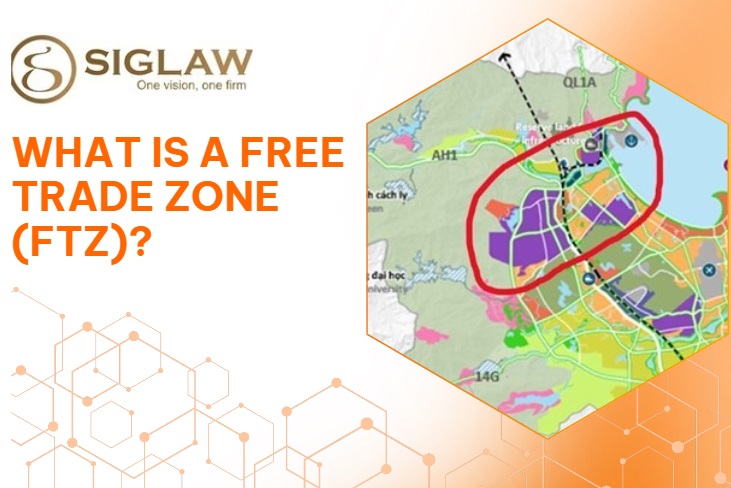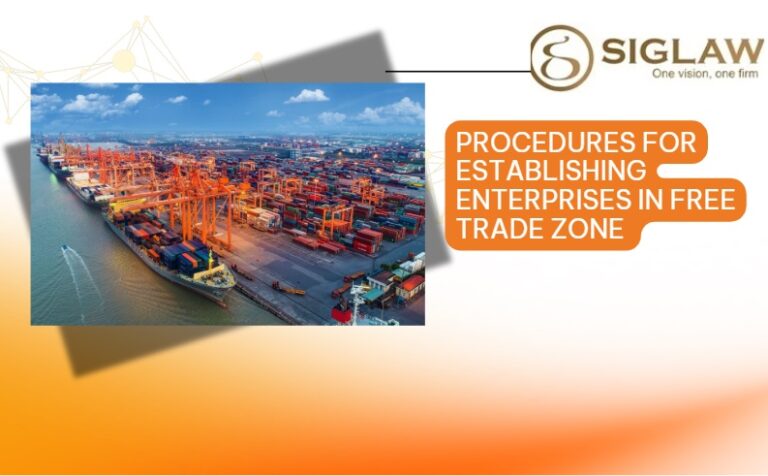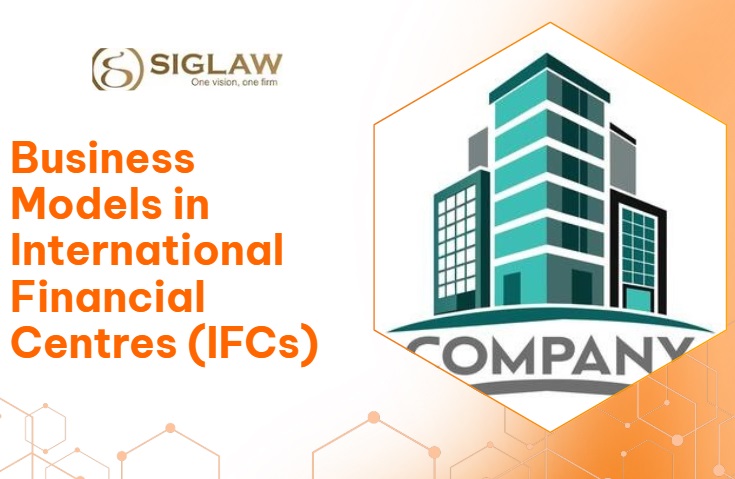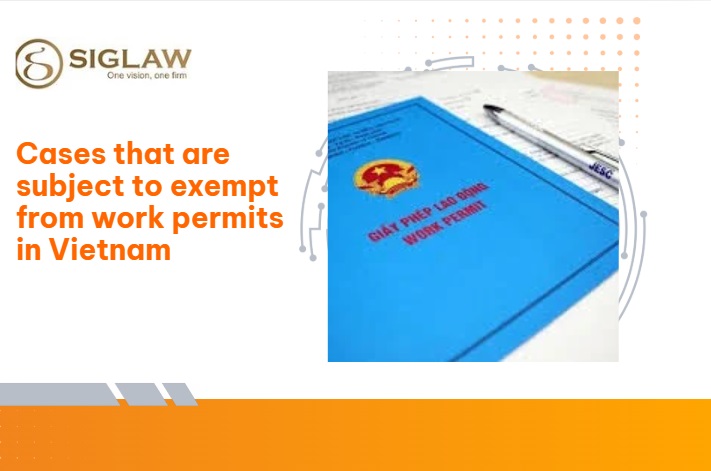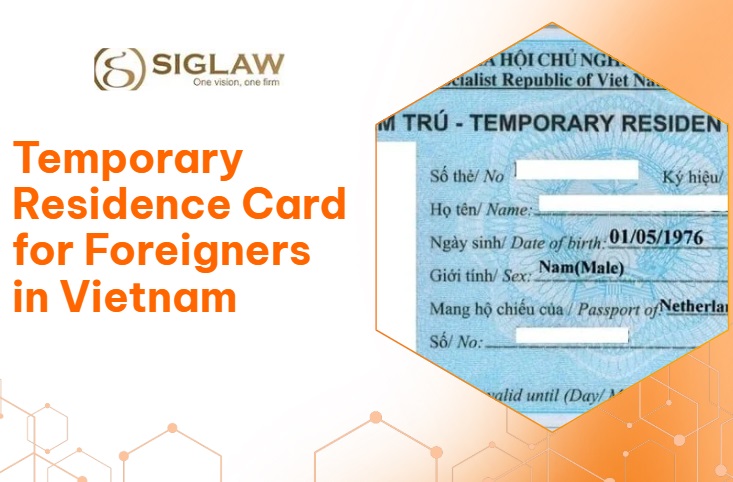The Law on Amendments and Supplements to a Number of Articles of the Law on Enterprises 2025 (hereinafter referred to as the “Amended Law on Enterprises 2025”) will take effect from July 1, 2025, introducing several notable new provisions. Among these is the regulation on the responsibility to declare and retain information on a company’s beneficial owners.
This marks the first time that the concept of a “beneficial owner” has been introduced into Vietnamese enterprise law — a significant step toward business transparency. However, questions remain: How should this concept be understood? Under what circumstances do the obligations of declaration and information retention arise?
Through this article, Siglaw Law Firm seeks to provide readers with a clear understanding of the beneficial ownership framework. A proper grasp of these regulations will assist enterprises in compliance, minimizing oversights and potential violations.
What Is a Beneficial Owner?
Under Point đ, Clause 1, Article 1 of the Amended Law on Enterprises 2025, a beneficial owner of an enterprise is defined as an individual who, in substance, owns the charter capital or exercises control over that enterprise (except for state-owned enterprises or enterprises with state capital).
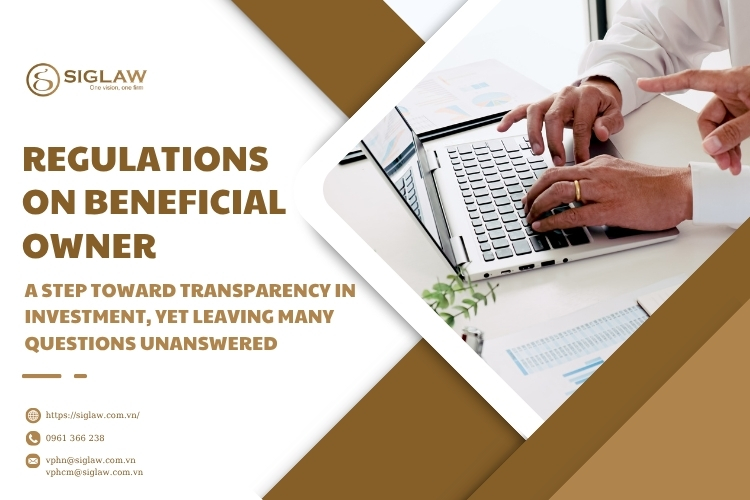
Accordingly, the beneficial owner must be a natural person — organizations are excluded from this definition. An individual is considered a beneficial owner in one of the following cases:
(i) Actual ownership of charter capital: An individual is deemed a beneficial owner upon owning shares or capital contribution in the enterprise (regardless of the quantity or value).
However, as guided under Point a, Clause 1, Article 17 of Decree No. 168/2025/ND-CP, only individuals who directly or indirectly own at least 25% of the charter capital or voting shares are recognized as beneficial owners. Thus, individuals holding less than 25% are excluded from the scope of management.
A person is considered an indirect owner if they hold 25% or more of the charter capital or voting shares through another organization.
(ii) No ownership of capital but exercising control over the enterprise:
Under Point b, Clause 1, Article 17 of Decree 168/2025/ND-CP, “control” refers to one or more of the following rights:
- To appoint, dismiss, or remove the majority or all members of the Board of Directors, Chairman of the Board, Chairman of the Members’ Council, legal representative, Director or General Director;
- To amend or supplement the enterprise’s charter;
- To alter the company’s organizational management structure;
- To reorganize or dissolve the company.
Accordingly, even without holding any equity, such an individual wields significant decision-making power within the enterprise.
Obligations of Enterprises with Beneficial Owners
Upon review, if an enterprise identifies any person meeting the criteria of a “beneficial owner,” it must undertake the following actions:
Pursuant to Clause 2, Article 1 of the Amended Law on Enterprises 2025, enterprises are required to:
- Collect, update, and retain information on beneficial owners; and
- Provide information to competent state authorities upon request to identify beneficial owners.
Specific obligations for declaring beneficial ownership information include:
a) Upon establishment of an enterprise:
Depending on the enterprise type, the following information must be declared:
(i) Individuals holding 25% or more of the total voting shares;
(ii) Individuals holding 25% or more of the charter capital in partnerships or multi-member limited liability companies;
(iii) The owner of a single-member limited liability company;
(iv) Information identifying the beneficial owner of an organizational shareholder holding 25% or more of the total voting shares (if applicable);
(v) Individuals who exercise controlling rights as defined above (if applicable).
However, the law remains silent on whether an organization holding 25% or more of the charter capital in a limited liability company must declare such information. Since Decree 168/2025/ND-CP does not explicitly address this, it may be interpreted that enterprises are not required to declare in this case. Nevertheless, questions persist — could this still constitute an indirect ownership or control situation?
In practice, enterprises face uncertainty when applying the regulation despite the intent to comply, and business registration officers have informally advised that such declarations are not required in these cases.
b) For enterprises established after July 1, 2025:
The declaration or supplementation of beneficial ownership information (if any) shall be conducted concurrently with the enterprise’s nearest registration or change notification filing, unless the enterprise opts to submit earlier.
Furthermore, if any changes occur in beneficial ownership information or in previously declared ownership ratios, enterprises must notify the provincial business registration authority within 10 days from the date of change (Article 52 of Decree 168/2025/ND-CP).
c) Declared information must follow the prescribed forms attached to Decree 168/2025/ND-CP, and generally includes:
- For individuals: full name, date of birth, gender, personal identification number, contact address, and ownership percentage of charter capital or voting shares.
- For organizations: name, enterprise code or establishment decision number, date and place of issuance, head office address, and ownership percentage of total voting shares.
After submission to the business registration authority, the enterprise must retain the declared list of beneficial owners, either in paper or electronic form, as required by this Decree. The retention period shall be at least five (05) years from the date the enterprise is dissolved or declared bankrupt, in accordance with Clause 26, Article 1 of the Amended Law on Enterprises 2025.
Corporate Advisory Services at Siglaw
Siglaw Law Firm provides comprehensive advisory services on beneficial ownership and enterprise compliance, including:
- Advising on identification and declaration of beneficial ownership information in accordance with new regulations;
- Drafting dossiers and forms and representing clients in submission to the Business Registration Office;
- Assisting in reviewing, updating, and retaining records in compliance with legal requirements.
With a team of lawyers thoroughly versed in the Amended Law on Enterprises 2025, Siglaw ensures that enterprises maintain transparency, legality, and minimal legal risk throughout their operations.


